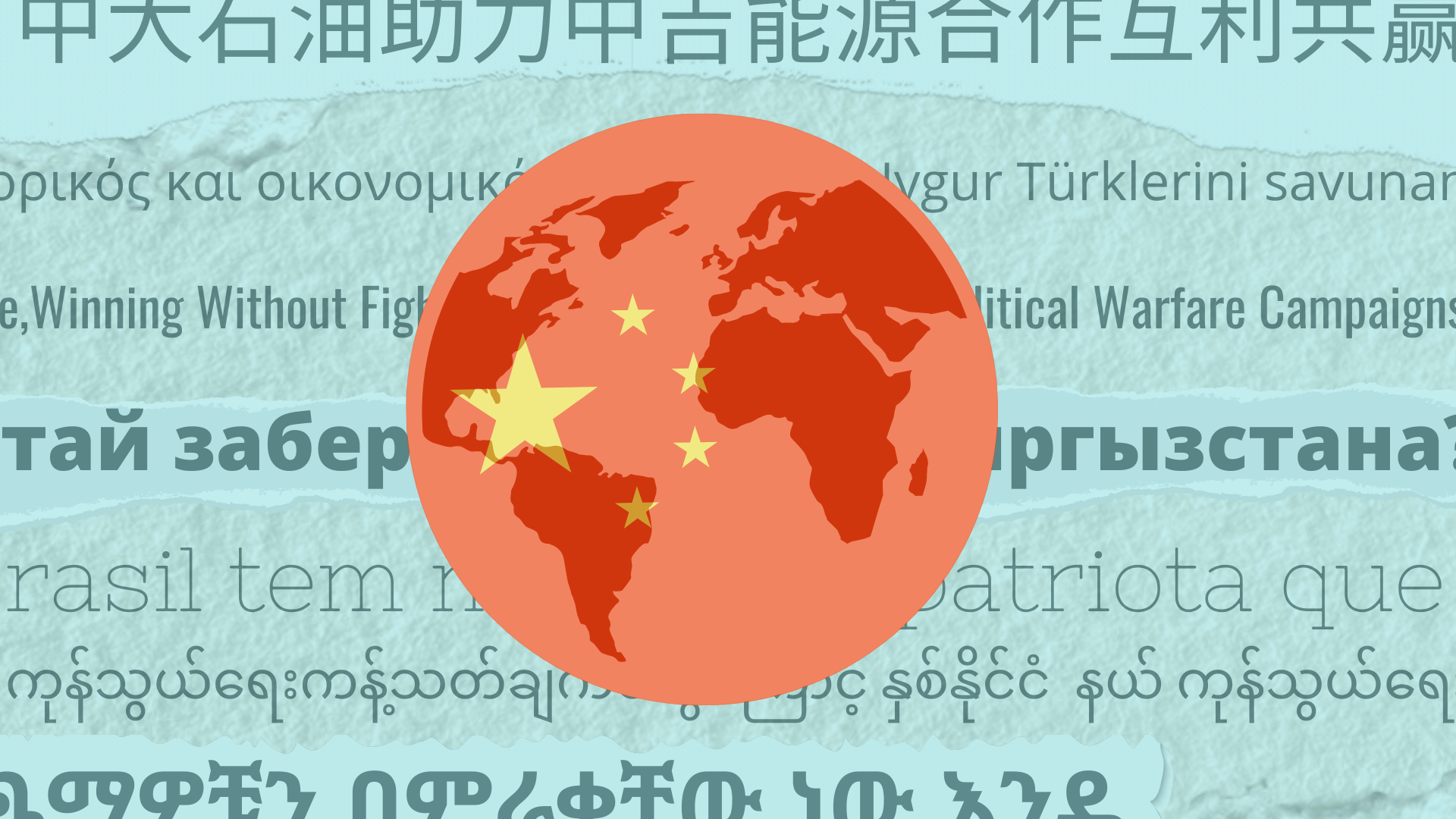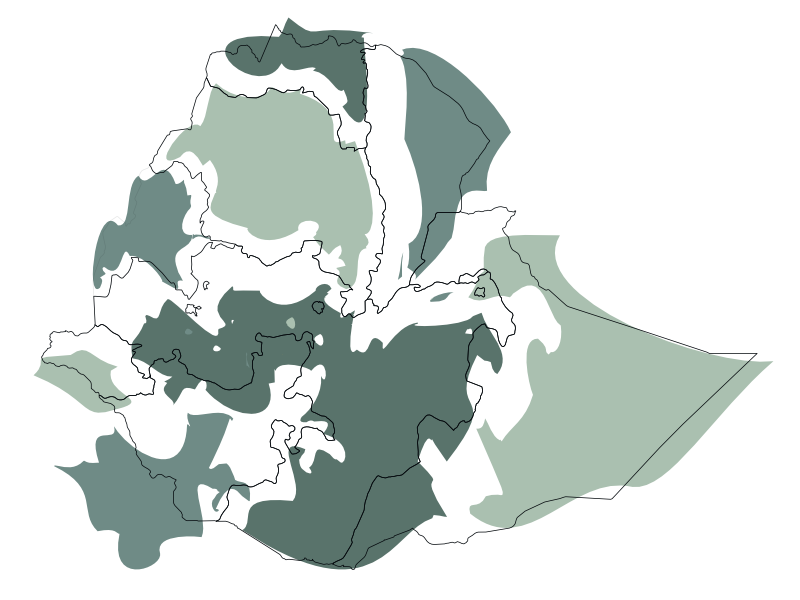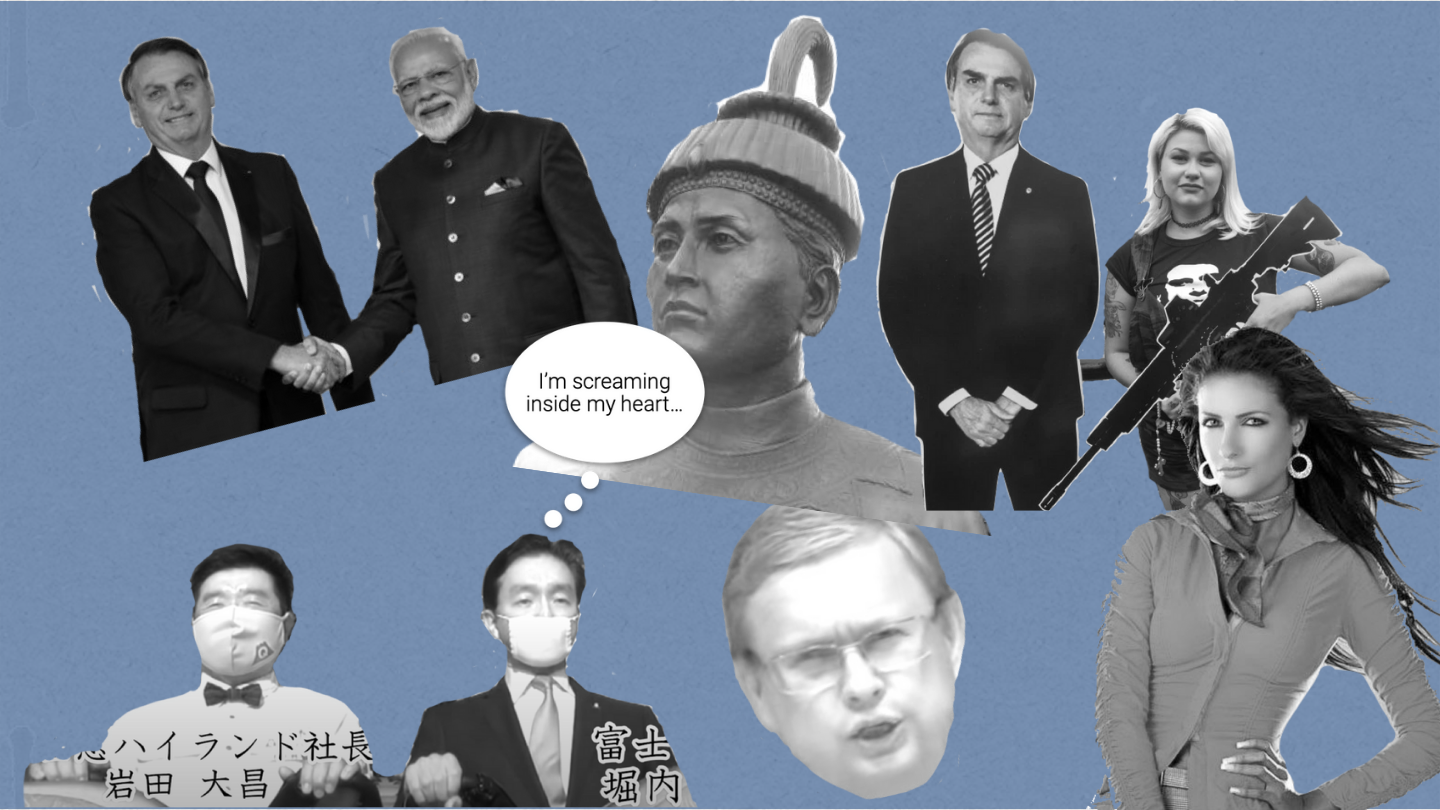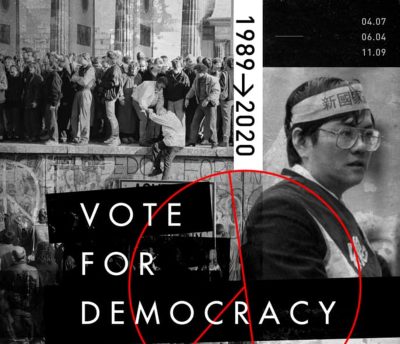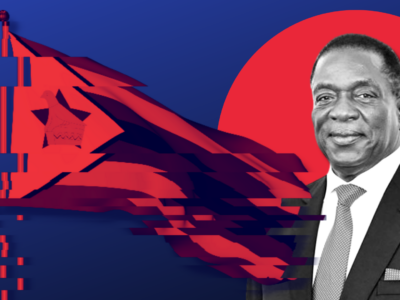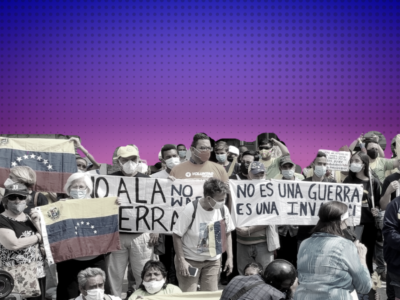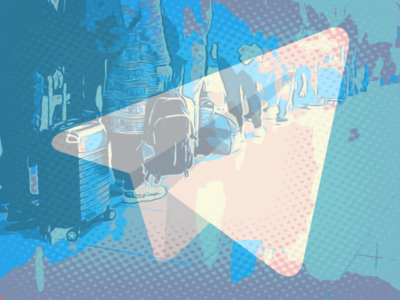The Civic Media Observatory is a method to investigate and decode how people understand information and create knowledge in complex and seemingly chaotic media ecosystems.
Global Voices’ Civic Media Observatory research identifies and tracks key themes and narrative frames that emerge around events, trends and other phenomena, and explains the context and subtext of local, vernacular, and multilingual media. Researchers use an expansive definition of “media” that includes items appearing in mass media, social media platforms, open internet sources, and offline sources.
Observatory research explores the civic impact of media items, offering insight into the effect of narratives on audiences’ understanding of events and social phenomena, and identifies themes of urgent public interest. A key feature of the method is the assigning to media items a civic impact score based on international human rights standards. Using this score, we make claims about the potential effects of narratives on audience behavior and on civic discourse.
Follow our work in Undertones, our weekly newsletter. In each edition we’ll analyze an event, emerging trend, or a complex story, identifying key narratives of urgent public interest, and delving deep into the context and subtext of local, vernacular and multilingual media. Undertones also offers an entry point into the public datasets that underpin our Observatory work.
Subscribe to Undertones
The Observatory method also suggests actions to be taken on the basis of civic impact scores. Project teams work as trusted partners with organizations such as media and tech companies and nonprofit advocacy organizations, to identify and recommend actions for certain categories of content, including recommendations for monitoring of narratives, keywords and phrases that have the potential to cause harm.
Observatory work is focused in part on questions of misinformation, disinformation, disruption and confusion, but goes beyond fact-checking. Our larger goal is to identify information that has civic value in given contexts, and around specific events and trends. The Observatory is also deployable as a method for rapid identification, sorting and analyzing of media items and their effects.
Researchers work in Airtable, a relational database, that allows for rich interlinking of media sources, themes, narrative frames, media items, and languages, as well as granular analysis of dozens of metadata fields we use to analyze media items. This approach helps us to build consistent responses to questions about the accuracy, truthfulness, verifiability, and ideological leaning underlying media items, as well as deeper analysis of context and subtext, when warranted.
Observatory research feeds into our editorial work as well, helping us to tell stories about underlying narratives, perspectives, and claims.
Since the launch of the Observatory in the middle of 2019, we have run large transnational investigations on the topics of EU Accession, COVID-19, Taiwan’s presidential election, conflict in Ethiopia, and China’s Belt & Road Initiative, as well as focused investigations into elections in Myanmar, Brazil, Bolivia, and Venezuela and country monitoring projects in India, Myanmar, Brazil, Bolivia, Venezuela, Haiti, Ethiopia, Russia, Bangladesh, Pakistan, Afghanistan, Mali, and Nicaragua.
Slide presentation on the Civic Media Observatory methodology.
Observatory projects
Data Narratives: Civic Media Observatory's project on Data Governance
Data Narratives aims to identify and understand the discourse on data used for governance, control, and policy in El Salvador, Brazil, Turkey, Sudan, and India.
Community Civic Media Observatory
The Community CMO employs an innovative methodology to analyze local media ecosystems, for which our community’s insights are invaluable.
Unfreedom Monitor
The Unfreedom Monitor is an Advox initiative to deepen our understanding of the relationship between technology and authoritarian power.
Country monitor observatories 2021-2022
Monitoring of emerging themes and narratives in Afghanistan, Pakistan, Myanmar, India, Bangladesh, Turkey, Russia, Mali, and Nicaragua in 2020-2021.
China’s Belt and Road Initiative: Deal or steal?
As China expands and advances its interests as a global power, we explore its influence in other countries.
A clash of narratives: National identity and violent conflict in Ethiopia
Long-standing conflicts over the contours of the Ethiopian state have once more exploded into violence. Unreconciled disagreements between the state and regional powers in Oromia and Tigray threaten to tear Ethiopia apart.
Country monitor observatories 2020-2021
Monitoring of emerging themes and narratives in Myanmar, India, Bolivia, Brazil, Venezuela, and Haiti in 2020-2021.
Narratives of COVID-19
Global Voices decodes narratives of COVID-19 in 10 countries as it spreads around the world in 2020.
Taiwan elections 2020
Taiwan held presidential elections on January 11th, 2020 to determine the course of its political and economic orientation for the next four years.
EU in the Balkans: An accession too far
North Macedonia and Albania have long sought to become members of the EU. The debate over their application pitted ideas of nationalism, corruption, EU reform and future relations with regional powers.
Stories from the Observatory
Stories about Civic Media Observatory
Global Voices seeks researchers from Brazil and El Salvador to participate in our Civic Media Observatory projects
Researchers should either be based in or have strong knowledge and ongoing access to local information from these two countries.
Undertones: Portugal and the myth of the good colonizer
In the 1950s, Portugal's dictatorship overhauled the country's national identity and embraced the theory of the good colonizer. What traces are left of that narrative today?
Undertones: Transwomen in Pakistan reclaim their ancestral heritage
While Western far-right narratives take root in Pakistan, the queer community endeavors to remind citizens that they have always been there
Bolivian high school students want to redefine conversation around environment and climate change
"Although they say that we are the future of the country, they do not take us into account," say students who want to contribute to these issues.
Israel swings between democracy and the religious far-right
“Israel has been often branded as the only democracy in the Middle East, but that idea is crumbling fast”
The Kremlin’s tactics to enlist more men to war
Russian authorities are struggling to sell the war to potential soldiers, but an electronic drafting system might change the game
Elections and Power Dynamics in Zimbabwe
Emmerson Mnangagwa was re-elected as president in an election that has been called "blatant and massive fraud" by the opposition.
Undertones: Russia's war strengthens Venezuelan solidarity with Ukraine
Alessandra Soler’s research reveals that for many Venezuelans, ‘Venezuela is also a victim of Russia’
For Venezuelans, the invasion of Ukraine hits close to home
For the past twenty years, the Venezuelan government has become increasingly intertwined with the Kremlin. Now, many Venezuelans protest against Russia's encroachments at home.
Undertones: Inside Russian influencer chats in Argentina
The conversations happening on these Telegram channels do not have to do with Russian politics - but with Argentina's
Undertones: Brazilians are embracing Russian narratives when convenient
Polarization impacts Brazilians’ perception of the war in Ukraine – in some cases by embracing Russian narratives
Undertones: If on welfare, better learn Dutch and be a man
Low education about AI tech leads to ill-informed narratives about algorithmic bias
Undertones: Turkish citizens rethink what democracy means
With President Erdoğan's reelection, some Turkish citizens are questioning whether voting is enough for democracy
Undertones: Indigenous Bolivian youth question media narratives on fossil fuel extraction
Coping with severe drought, Indigenous communities in the Gran Chaco want local media to also highlight how oil companies impact their communities
Undertones: A look inside Venezuela's extraordinary corruption scandal
Maduro put some of his own people in prison over the graft of billions of dollars. Theories abound as to why.
Undertones: What do onions have to do with the Turkish elections?
President Recep Erdoğan is pitting “identity” versus “reality” in his campaign to stay in power
Undertones: ‘Ukrainians have developed their own vocabulary about the war,’ Ukrainian scholar says
Dr. Tanya Lokot provides insights into the media landscape of Ukraine, outlining its dynamics.
Undertones: Iran's powerful narratives about religion and rebellion
"Religious narratives are exactly why the regime hasn’t been overthrown yet"
LIVE on March 23: China's Belt & Road initiative—New cycle, or fundamental shift?
Join us on YouTube Live on March 23 for a discussion of how recent world events have shaped the Belt and Road Initiative (BRI) in China and in the Global South.
Undertones: Zimbabwe's cyberpunk cities fueled by China
Zimbabwe is set to become Africa’s first country with a “smart” capital city built from scratch. But many are wary of Zimbabwe becoming a surveillance state.
Undertones in Turkey: Earthquakes fan the flames of election season
Erdoğan’s leadership may be on the line, with compounding accusations of corruption, economic mismanagement, and the slow and inadequate response to the earthquake.







